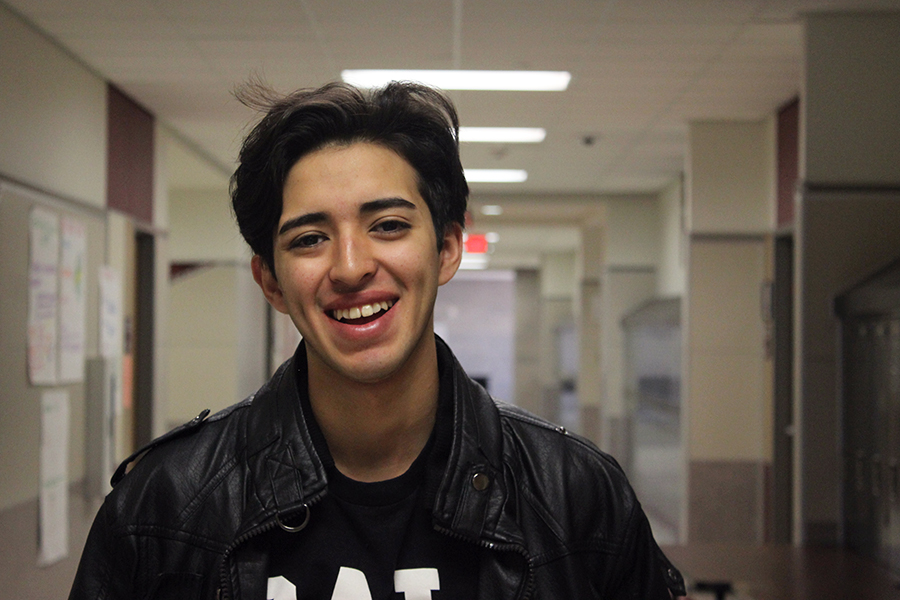Senior Yobany Pizano
Q: What does being recognized in the National Hispanic Recognition Program mean to you?
A: “It feels great to know somebody out there is recognizing us not only for academic acknowledgements but also our heritage and our backgrounds as well.”
Q: How did you find out? How did you feel?
A: “I got an email and they just let me know. It was a really nice, warm feeling to know somebody out there was recognizing my academics. It felt great and it also felt like I had some sort of support to help me get into college.”
Q: What did you do to help improve your test scores leading up to it?
A: “I was in the PSAT team and shout out to Mrs. Fieszel, she is one of the best teachers I’ve ever had. Also Mrs. Squibb, they are both amazing and they both cooperated with me to improve my test scores.”
Q: What does it take to get the award?
A: “There was like a score boundary to receive and I scored a 1400 on my PSAT so they decided it was good enough for me to receive the National Hispanic Scholarship, so I am very grateful for that. That is all I had to do; score high enough.”
Q: What are your college and career plans?
A: “I’m hoping to go to a four-year university. I still haven’t decided where to go, but I have decided I’m either majoring in theater studies or majoring in acting or theater performance and getting my teacher certification because that is what I dream to do. I dream to be a theater teacher.”
Q: What activities are you involved in at school?
A: “Very involved in theater, three out of my four classes will be theater related and I am also involved with speech and debate with Mrs. Squibb and I’m [president of] the speech and debate team.”
Q: Are you involved in anything outside of school?
A: “Just my family business where my parents don’t speak English at all so they need me to be their little communicator, secretary, if you will. Where I talk to all my customers and I make sure we have that connection, speak to one another, and my parents don’t have to worry about the language boundary.”
Q: How will this award affect your life/future?
A: “It will make it so much easier for me to be able to pay for college, which is the biggest struggle, coming from me, so I’m very grateful for it. That’s probably the most that will change is that I will be able to go to college because of it. It will help with the finances.”
Q: What has been your biggest obstacle academically? How did you overcome it?
A: “Reading, which sounds really silly at first but honestly it’s the section on the test I always struggled with because I just cannot ever stay focused enough or sometimes I won’t understand a word. But you have to imply and go with your gut. That’s where I struggled the most, but I worked hard, I studied, I got my score up and I received the award.”
Q: Who in your life has helped you reach this point? How did they help you?
A: “Mrs. Fieszel and Mrs. Squibb. They were strong supporters of me from the start, from those long nine weeks they were by my side and made sure I was never let go of. I am very grateful for both of them.”
Q: What is your advice to others hoping to be National Merit Scholars?
A: “Stay focused, don’t let go of that vision because once you lose focus, then everything goes to waste. But if you keep going at it and you make it your number one priority, you will succeed no matter what.”
Q: What class/outside of school tutoring prepared you the most?
A: “I didn’t take any classes outside of school tutoring, but I did take a lot of time to myself at home to look over SAT books [and] PSAT books my PSAT team teachers provide me with. ”
Q: Do you have any good study tips for the standardized tests?
A: “Standardized testing doesn’t look at intelligence, it looks at strategy. So look up strategies, look up shortcuts to have a score higher on those tests. Believe it or not, some of them are real. For example, on the SAT, if you use your fingers for the science portion, you will get an exponentially higher score on it.”

